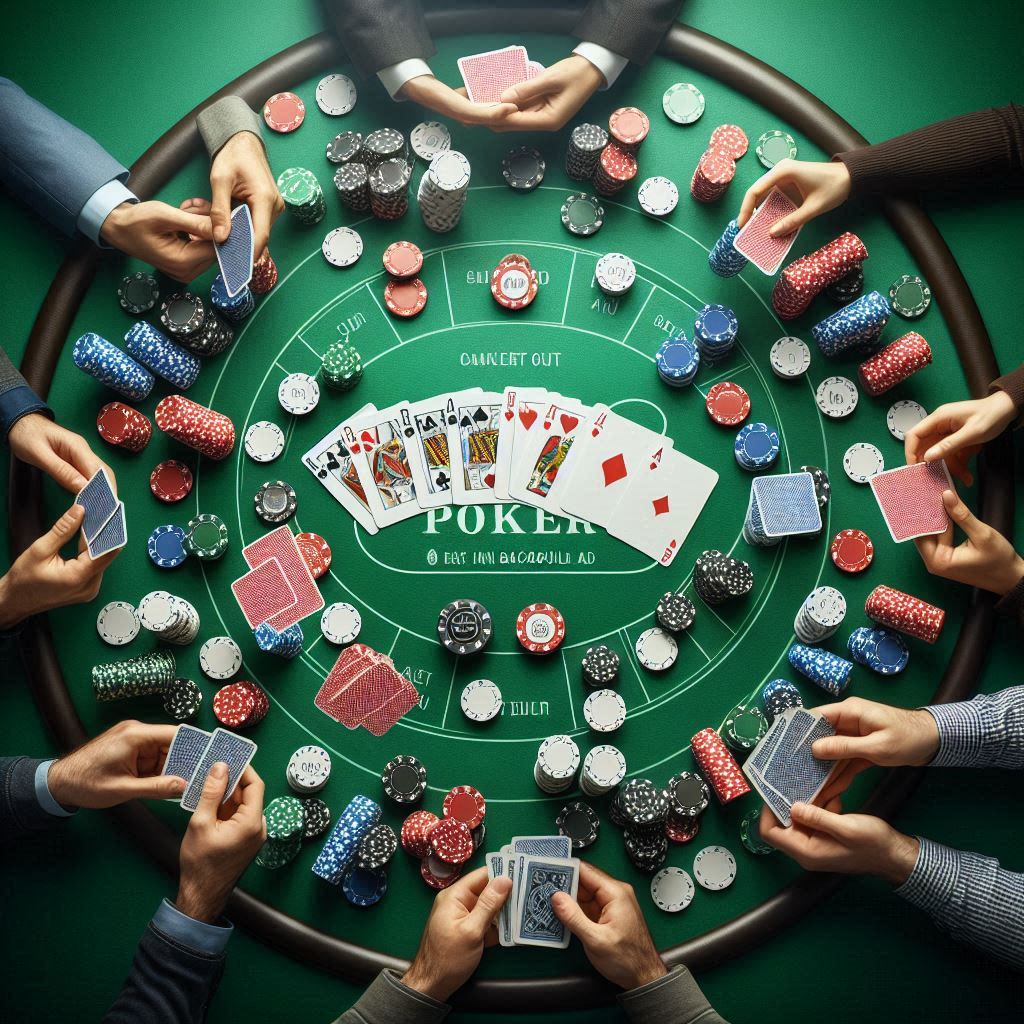Introduction
Entering the world of poker can be overly complex, especially when you encounter unfamiliar terms. This guide breaks down 38 poker terminology terms to help you navigate games with confidence. Whether you’re playing online or live, understanding these terms will improve your gameplay and communication at the table.
Let’s dive into our glossary of poker terminology.
38 Poker Terms
All-In: Betting all of your chips on a hand.
Example: “Player went all-in with his pair of Aces.”
Ante: Small, mandatory bet that all players make before the hand begins. In some games, the big blind may pay the ante for all players.
Example: “The ante is 25 chips, paid by the big blind each hand.”
Aggressive Player: A player who frequently bets and raises, putting pressure on opponents.
Example: “Player’s aggressive style forces his opponents to make hard decisions.”
Bluff: Betting strategy where a player bets or raises while representing a stronger hand than they actually have.
Example: “Player’s bluff succeeded when he bet aggressively, representing a flush he didn’t have.”
Button: The dealer position, marked by a circular disc. This position rotates clockwise after each hand.
Example: “You’re on the button, so you will act last after the flop.”
Call: Matching the current bet to stay in the hand.
Example: “I’ll call to see the flop.”
Check: Passing the action to the next player without betting when there’s no bet to call.
Example: “Both players checked on the flop.”
Chips: The currency used in poker games, representing value.
Example: “Each player starts with 10,000 in chips.”
Cut-off Position: The seat to the right of the button, second-to-last to act post-flop.
Example: “Being in the cut-off, you have a good opportunity to steal the blinds.”
Donk Bet: Bet made by an out-of-position player into the previous round’s aggressor, often considered a weak play.
Example: “Player made a donk bet on the flop, leading into the preflop raiser.”
Fish: Weak player who often makes mistakes and is considered an easy target by skilled players.
Example: “The table had several fish, making it a very profitable session for good players.”
Flop: The first three community cards dealt face up in games like Texas Hold’em.
Example: “The flop came Ace King Queen.”
Fold: Discarding your hand and forfeiting the pot.
Example: “After the big raise, I decided to fold.”
Full House: Hand consisting of three of a kind plus a pair.
Example: “Player’s full house, Aces full of Kings, won the pot.”
Heads-Up: Situation where only two players are involved.
Example: “The tournament is down to heads-up play.”
Kicker: Unpaired card used to determine the winner when players have the same pair or high card.
Example: “They both had a pair of Aces , but Player’s Queen kicker won the pot.”
Min Bet: The smallest bet allowed in a given betting round, typically the size of the big blind.
Example: “Player made a min bet of 100 chips on the flop.”
Muck: Discard your hand face down, on the pile of folded cards.
Example: “After seeing the river card, Player mucked his hand.”
Middle Position: The seats between early position and late position at the table.
Example: “Playing from the middle position requires caution, as several players will act after you.”
Nut Flush: The highest possible flush given the community cards.
Example: “With three hearts on the board, the Ace of hearts gives you the nut flush.”
Nit Player: A very tight player who plays a few hands and avoids taking risks.
Example: “Player is such a nit, he only plays premium hands.”
Orbit: A full rotation of the button around the table.
Example: “We’ve played two orbits since the last break.”
Pocket Pair: Starting hand with two cards of the same rank.
Example: “Player started with pocket Jacks.”
Position: Where a player sits relative to the button, affecting the order of action.
Example: “Playing in a late position gives you an advantage.”
Pot Odds: The ratio of the current pot size to the cost of a call.
Example: “With pot odds of 4:1, calling with a flush draw makes sense.”
Quads: Four of a kind.
Example: “Player hit quads to win a massive pot.”
River: The fifth and final community card in games like Texas Hold’em.
Example: “The river card completed the board.”
Re-buy: An option in some tournaments allowing players to buy more chips after losing their initial stack.
Example: “After losing all his chips, Player decided to re-buy into the tournament.”
Re-entry: Similar to a re-buy, but players must re-enter the tournament and re-enter as a new player.
Example: “The tournament allows unlimited re-entries during the first four levels.”
Shove: To go all-in, pushing all your chips into the pot.
Example: “With only 10 big blinds left, Player decided to shove with Ace-King.”
Showdown: When remaining players reveal their hands to determine the winner.
Example: “At showdown, Player’s two pairs beat other Player’s pair.”
Stack: The total amount of chips a player has available to play and bet with.
Example: “Player started the tournament with a stack of 10,000 chips.”
Tell: Behavioral clue that gives away information about a player’s hand.
Example: “Player’s hand trembles when he’s bluffing, it’s his biggest tell.”
Three Bet (3-Bet): A re-raise of the original raiser’s bet.
Example: “After Player raises, another Player three-bet with his pocket Queens.”
Four-Bet (4-Bet): A re-raise of a three bet.
Example: “Facing a three bet, Player four bet with his pocket Aces.”
Under the Gun (UTG): The first player to act preflop, sitting to the left of the big blind.
Example: “Being UTG, you should play tighter than in later positions.”
Whale: A high-stakes player who often loses large amounts of money, typically a wealthy amateur who plays for entertainment.
Example: “A whale joined the high stakes game, increasing the potential profits for the regular players.”
Value Bet: Betting with a strong hand to get called by weaker hands.
Example: “On the river, Player made a value bet with his flush.”

Conclusion
Understanding these 38 key poker terminology and terms will improve your game and table communication. Remember, mastering the poker terminology is just the first step. To truly excel, you’ll need to apply this knowledge through practice and experience.
Many online poker sites offer free play options where you can familiarize yourself with these terms in a risk-free environment. As you continue your poker journey, you’ll encounter even more specialized terms, but this glossary provides a solid foundation for beginners.
Keep this guide handy as you start playing, and soon you’ll be using these poker terminology terms naturally while focusing on your strategy. Good luck at the tables!

